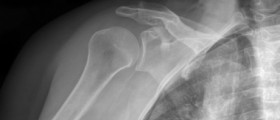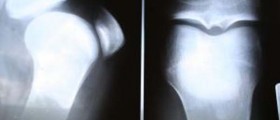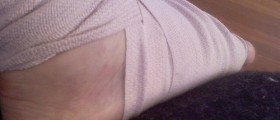
Introduction to shoulder and neck pain
The neck and shoulders are complex areas of the human body that contain muscles, bones, nerves, arteries, and veins, but also a very large number of ligaments and similar supporting structures.
Therefore, there are many different ways that these areas of the body can be injured and many different reasons for feeling pain in the neck and shoulders.
While some, such as a heart attack or major trauma, are life threatening, most are just simple injuries or strains.
Causes of shoulder and neck pain
The most common causes of pain in the neck and shoulders are injuries to the soft tissues in this area, such as the muscles, tendons and ligaments.
Whiplash experienced in a car crash is one of the most common causes of neck pain, for example. Another common cause is degenerative arthritis of the spine and neck, or perhaps a pinched nerve in the spine.
Any abnormal conditions of the spinal cord, heart, lungs or abdominal can potentially lead to pain in the shoulders and neck.
A broken collarbone can cause this kind of pain, as well as bursitis, which is when the joint cushions become swollen and painful from injuries.
A heart attack can also cause pain in this area of the body.
A broken shoulder blade is an injury that definitely causes pain to the shoulders.
Another sport-related injury is rotator cuff trauma, which is an injury to the tendons that support the shoulders. People who throw balls a lot like pitchers in baseball or quarterbacks in football often get this kind of pain in their careers.
Whiplash is another common injury that leads to neck pain, and it occurs in car accidents, when the neck is quickly and strongly accelerated or decelerated in motion.
Tendonitis can also lead to this kind of pain, because the tendons in the shoulder and neck connect the bones and the muscles.
Gallbladder disease can cause pain in the right shoulder in some cases.
Another condition that can cause shoulder pain is an inflammation that occurs under the diaphragm.
Symptoms
As far as symptoms are concerned, people will usually experience pain that can be described as dull or burning. Pain will lead to a stiff neck and shoulders, which will lead to a loss in the range of motion and can lead to headaches as well.
Weakness is another symptom, which is a result of pain in the muscles and bones whenever there is movement.
Numbness can occur when a nerve is pinched or bruised or even cut. Sometimes it will feel like the arm is falling asleep.
The arm and hand feeling cool can also be a sign of a neck or shoulder injury, which usually means that the arteries or veins have been injured.







-Causes,-Symptoms,-Diagnosis,-Treatment_f_280x120.jpg)









Your thoughts on this
Loading...